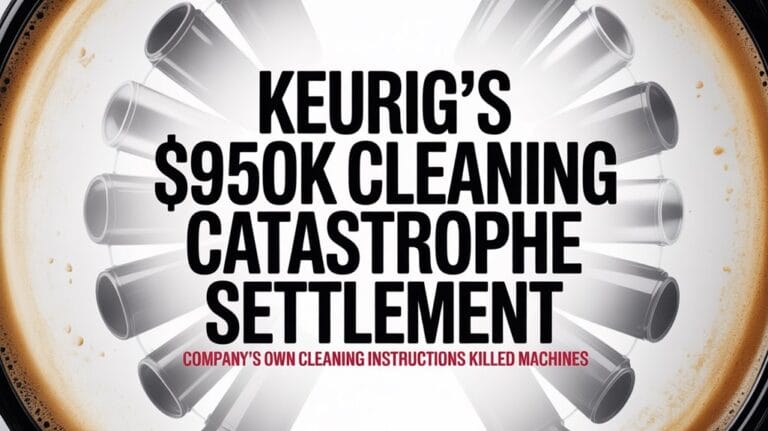Keurig Coffee Maker Issues
Have you ever pressed “brew” on your Keurig only to have it sputter, stall, or refuse to work entirely? Some users faced worse: their machines died after following company-recommended cleaning steps. In 2024, Keurig agreed to pay $950,000 to settle claims that its cleaning instructions damaged machines. The deal resolved a class-action lawsuit alleging certain cleaning practices caused permanent malfunctions, leaving owners with broken brewers.
Keurig’s manuals advised descaling solutions and vinegar to clear calcium buildup. But customers reported machines failing mid-clean, leaving them unable to brew. The settlement covers U.S. buyers of specific models between 2016 and 2023. Keurig hasn’t admitted fault but agreed to refund repairs, replacements, or cash payouts.
Keurig’s recommended descaling steps caused mid-clean failures. The settlement offers refunds, repairs, or replacements for select 2016-2023 U.S. models without admission of fault.
Though not required, the company updated its guides to clarify cleaning steps. Others reported persistent issues unrelated to cleaning. Machines often brewed partial cups, stopped mid-cycle, or displayed error lights that wouldn’t reset. Troubleshooting guides often note that a clogged exit needle is a common culprit, recommending using a paperclip to clear obstructions and descaling monthly to maintain water flow. Models like the K-Duo and K-Supreme faced complaints over cloudy water, grounds in coffee, or refusing to turn on. Basic fixes like unplugging or clearing air bubbles helped some, but others saw problems return.
Maintenance complexities worsened frustrations. Descaling—meant to remove mineral buildup—could leave machines stuck in “descaling mode” even after completion. Users tried cleaning needles, valves, or tubing themselves, but improper methods risked damage. Replacement parts or professional repairs became unavoidable for some. However, some discovered shaking the machine or meticulously cleaning internal components reversed brewer failures initially blamed on descaling.
However, similar issues appeared across models. K-Slim units sometimes brewed inconsistently, while K-Duo machines struggled with full-pot cycles. Support videos and FAQs addressed basic troubleshooting, but unresolved cases led some to abandon their Keurig entirely.
The $950,000 payout underscores ongoing challenges users face balancing maintenance with machine reliability. Keurig directs customers to official guides and customer service, warning against unapproved fixes. Yet the settlement highlights how routine care could backfire, leaving owners to navigate repairs, replacements, or refunds. The company continues selling new models, citing improved designs—but for some, the damage was already done.

